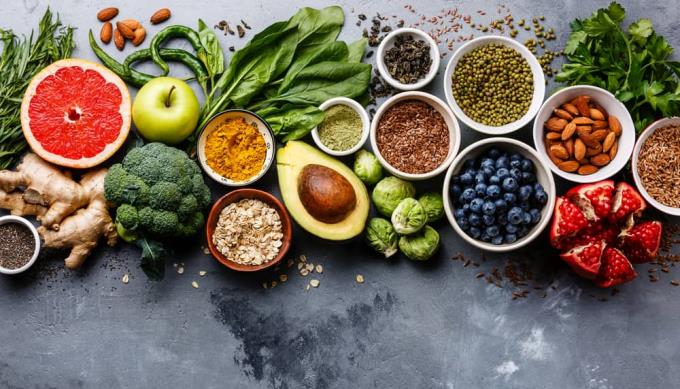After a caesarean delivery, your body is very weak so it needs to be supplemented with many different foods. However, there are some foods that are not really good for women after giving birth. Therefore, what diet cesarean section is the concern of many people.
Following delivery, following a healthy and nutritious diet will promote recovery, support faster wound healing as well as provide adequate nutrition for the baby through the breast milk flow.
The process of caesarean section can greatly affect the physical and mental health of a mother for many weeks after birth. So, in the process of recovering after giving birth, you should rest and limit vigorous exercise so as not to affect the wound much. Besides, the adequate supplementation of nutrients is also one of the measures that promote you to regain energy quickly. In this article, let's join aFamilyToday Health to find out what by cesarean section, what to eat or what to eat to quickly recover.
What fasting for surgery?
After a caesarean section, you should only drink water and then start eating snacks, liquid and easily digestible foods for about 8 hours. Your body will recover more slowly than normal, so abstaining from certain foods can help speed up the recovery process.
Some of the following examples will help you answer the question of what diet caesarean section:
Avoid spicy and hot foods: Consuming these foods can affect the flavor of breast milk and they also make your stomach feel more upset.
Carbonated drinks: These drinks can cause bloating after a caesarean section because your stomach is currently very sensitive.
Caffeinated beverages such as tea, coffee, and energy drinks: These beverages should be limited as they can cause developmental problems if you breastfeed your baby.
Alcohol and alcoholic beverages: Breastfeeding mothers who consume alcohol and alcohol can impair a baby's growth and development.
Cold and undercooked foods: These foods should be excluded from the menu as they will make it difficult to digest.
Avoid fermented, fried and fast foods altogether.
Avocado: If you like foods with butter, avoid using them within the first 3 to 4 days after surgery
Food groups that cause constipation such as fried foods, red meat, refined grains, dairy products ... The reason is that the combination of hormonal changes occurred during cesarean section. thicker and weaker, lying down often can cause constipation, if severe, can cause pain and affect the wound. So, avoid foods that cause constipation to reduce the risk of disease outbreak.
What should eat after cesarean section to quickly recover?

During pregnancy, maternal nutrition often directly affects the fetus because the amount of food daily is converted into energy for both mother and baby. On the contrary, even though you don't "eat for two" after birth, your body needs a lot of nutrients to recover. Besides, maternal nutrition also directly affects breast milk, the best source of nutrition for babies in the first months of life.
So, in addition to the issue of "what diet caesarean section?", You need a healthy and nutritious diet to ensure both mother and baby are healthy. Here are some of the foods that you should include in your diet:
1. Protein-rich foods
Protein is essential in the growth and maintenance of tissues, so protein supplementation after cesarean section promotes new tissue formation, facilitating a quick wound healing. Some protein-rich foods include: meat, fish, eggs, poultry, shrimp, beans and peas, low-fat dairy products such as skim milk, low-fat yogurt, cheese, and broccoli, banana…
2. Foods made from whole grains
Products such as black bread, brown rice, whole grains ... are rich in carbohydrates, helping to maintain energy for a long time and support the production of breast milk . In addition, these grains are also rich in iron, fiber, folic acid and many vitamins that are essential for the child's development in the early years of life.
3. Foods that provide vitamins and minerals
Consumption of foods rich in vitamins and minerals, rich in antioxidants, helps support collagen production, regenerate scar tissue, and help heal wounds heal and avoid infection. In particular, vitamin C helps the mother's body to strengthen the immune system, thereby, through the milk source, the immature immune system of the baby is also better protected. You often add foods like oysters, liver, meats, legumes, and a variety of vegetables and fruits such as broccoli, kale, spinach, oranges, papaya, grapefruit, strawberries, oranges ...
4. Iron-rich foods
Iron minerals play a role in maintaining hemoglobin levels in the body and support the regeneration of blood lost during childbirth. Foods that are good sources of iron include:
Yolk
Red meat
Oysters
Beef liver
Some notes on nutrition after cesarean section

After cesarean delivery, in nutritional matters, you need to pay attention to the following things:
Daily rations should be broken down into five to five after a meal, about two hours apart. If you feel hungry during that time, you can snack on some fruits and nuts.
Ask family members to take care of the baby during the meal so that they can chew food well, support the digestive process better.
Limit weight loss after giving birth for the first 4 weeks because your body needs time to prepare before it starts to lose weight.
Recovering from a major surgery can be difficult, but if you take the right care, it will quickly get back to normal. Hopefully, the article of aFamilyToday Health can help you build a nutritious menu that is both healthy for mothers and full of nutrients for the baby and answers the questions of what to eat and what to eat.













